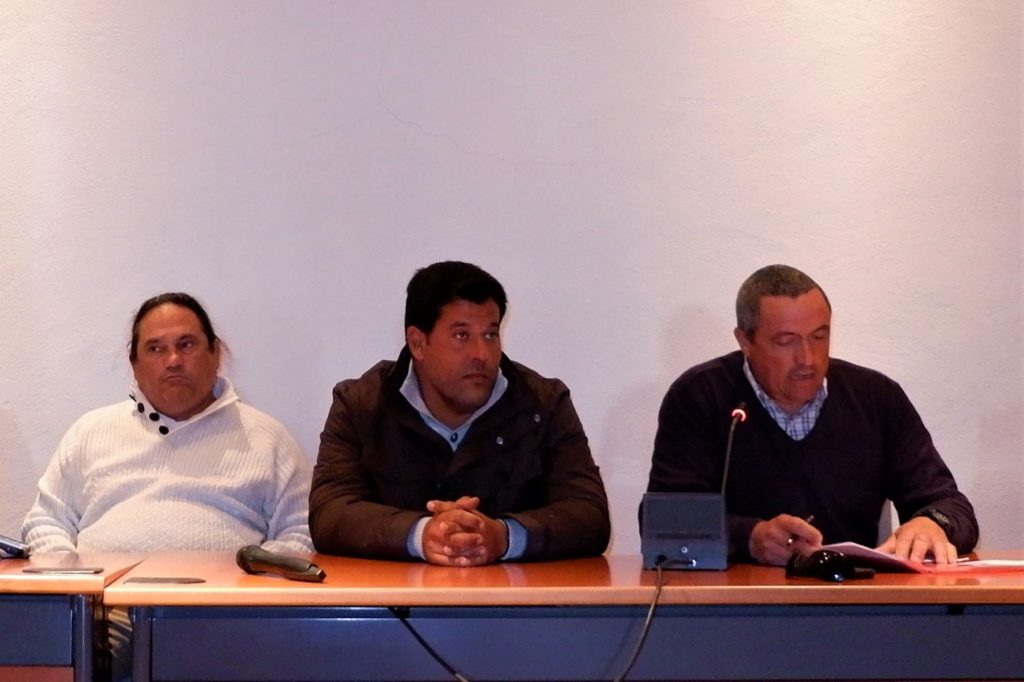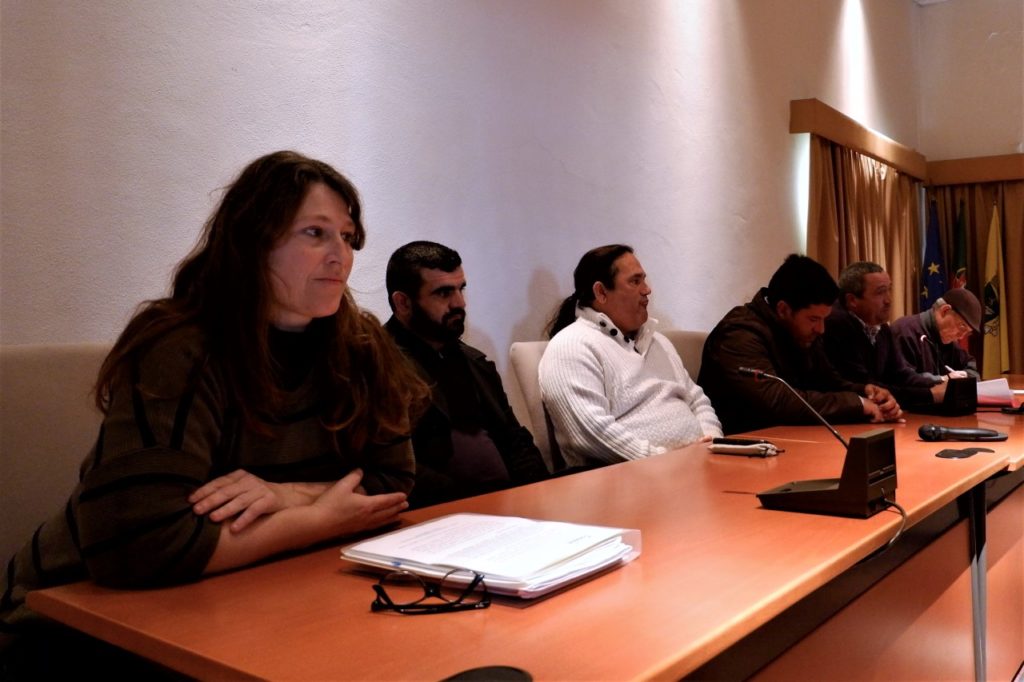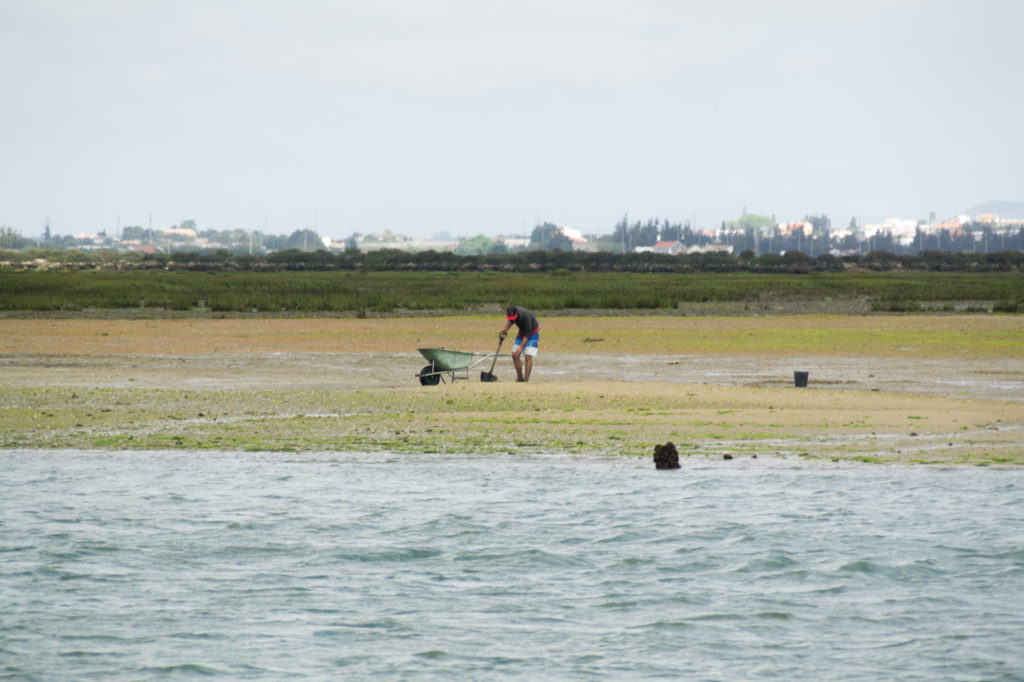Nurseries in the bivalve production area known as Olhão 3 (Olh3), located opposite this city, in the Ria Formosa, will have to move their nurseries to other areas of the estuary to continue producing. At issue, a ban on harvesting and marketing that lasts about a year ago and that there is no chance of being raised in the coming years.
The owners of production zones in Olhão 3 met yesterday morning in a plenary, where elements from the direction of the Formosa cooperative, to which a good part of these subsistence farmers belong, and from the Fisheries Union of the South Zone were also present.
At this meeting, in addition to disclosing a petition to be delivered to the Government, which can be consulted here, and to read a letter that Formosa will attach to the undersigned and send to various entities, which can be read here, the professionals did an accounting for their lives and set up a strategy for the future.
And two things were decided: to demand a solution from the competent authorities so that the nurseries can move to places already identified, with the necessary conditions to start producing as soon as possible and intensify the forms of struggle, taking the protest to the streets, if required.
In the case of the relocation of the nurseries, it ended up becoming an inevitability, in light of the result of a working meeting that the nurserymen held with officials from the Olhão delegation of the Portuguese Institute of the Sea and Atmosphere (IPMA) yesterday afternoon.
This meeting was requested by IPMA moments before the beginning of the nursery session and ended up confirming one of the fears expressed by shellfish producers: it will take a lot of time and other environmental conditions for the Olh3 zone to no longer be classified as D, a seal that attests to the lack of quality of the water and that it prevents the bivalves produced there from being marketed in the normal circuits – only at very low prices.

"We were informed that, given the fact that there were results that pointed to poor water quality, in the set of samples collected over six months in 2019, the area can only be reassessed after three years of analyzes with consecutive positive results", he revealed to Sul Informação Luís Santos, nurseryman at Olhão 3 and member of the social bodies of Formosa.
Luís Santos is also the spokesman of a commission that was formed yesterday, composed of nurserymen, elements of Formosa and union leaders, to represent the affected professionals in meetings with official entities.
The fact that it takes so long to obtain an OLh3 reclassification is due to the need to comply with community standards. "What they explained to us is that, as the previous analyzes were justified with the construction of the WWTP and were not all good, now it is necessary to restart the process from scratch."
This new information provided by IPMA confirmed the need to abandon Olh3 and move the nurseries to other locations in the estuary. “The overwhelming majority of nurserymen decided that the best solution is to change the nurseries and that is why we will fight”.
At the meeting, bivalve producers who have nurseries at Olh3 did not spare criticism from the authorities, particularly the City Council. Because, they explained, this ban is due to “a large concentration of fecal coliforms. This situation is due to the non-treatment of sewage, open-air sewage. Because if they were treated well, there would be no fecal coliforms there».
In March 2019, «a meeting was scheduled by the entities with all the people of Olhão 3 to say that they were going to give a new chance, because the new WWTP had been built Faro/Olhão and based on this development, analyzes would be carried out for six months, with sampling every 15 days, and an answer would be given to people».
“These analyzes ended in August 2019. Since then, Formosa and the people have been trying to find out, but have not received any response, either from the entities or from Secretary of State José Apolinário, who scheduled a meeting with people, but which has not been available to date», he illustrated to the Sul Informação Luís Santos, moments before holding the meeting with IPMA.

This process, as was noticed shortly afterwards, came to nothing, so the solution is to change. And the nurserymen at Olh3 have all thought out.
At this moment, and see you tomorrow, the 5th, the 2nd version of the Plan for Aquaculture in Transitional Waters is under public consultation, which aims to regulate aquaculture production in areas where there is a confluence between salt and fresh water, such as the mouths of rivers, but also the Ria Formosa, among others .
During the discussion of the first version of the plan, Formosa “completely rejected” the proposed relocation area, as it was “in a conflict zone, with natural banks”, used by the nurserymen for the collection of clams.
“In the plan's new proposal, which is still under public discussion until the 5th [tomorrow], there is only one area identified for this relocation, an area of 49 hectares of expired licenses and vacant nurseries. In other words, it is a place that, from the outset, does not present the minimum conditions for the continuation of aquaculture work. If they abandoned that area, it is because it is not productive».
Thus, Cooperativa Formosa made a proposal in case it was necessary to relocate the nurseries. The areas identified were Cabeço da Barrinha, in Fuzeta, and Anicha, which “do not conflict with natural banks or other fishing activities. In our view, the areas we have indicated are good for relocation», illustrates Nuno Russo, another member of Formosa.
In the coming days, «as soon as possible, we want a meeting with mr. Mayor of Olhão António Pina. We want him to take a firm stand on our behalf. We think it's time for this. We believe he will be with us. This is a cause that is of interest to the people of Olho .
“We are ready to go out into the street, peacefully and orderly. We are under the rule of law and we can express ourselves within the law. I think that's enough. Basically, what we want is respect!”, concluded Luís Santos.


















Comments